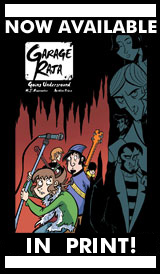Geoff Johns: Completely Unremarkable
Comic fans are –by and large—a desperate lot. It’s hard not to be, considering that their hobby is regarded as an immature medium bereft of any real genius. This certainly isn’t TRUE — Grant Morrison, Alan Moore, R. Crumb and Chris Ware are indisputably brilliant – but there’s real reason to pause when many of the top talents in the medium still cite Stan Lee as a major influence. There’s a reason for this, though: most of these wretches literally built their careers based on their being fans. Writers such as Brian Michael Bendis, Kevin Smith, John Byrne and Rob Liefeld earned their positions in the medium through virtue of their being bigger fanboys than every other writer and artist, and it shows; no one writes worse dialogue than Bendis, nobody is worse at conceiving of plots than Kevin Smith, and no one writes a more asinine story than John Byrne (seriously, his idea for re-imagining Namor –a character whose only defining trait is his anger — was to make him the CEO of a waste-disposal company. He justified this by bringing up various obscure back-issues of Namor and generally making an ass out of himself).
Worst among this lot is Geoff Johns, the current writer-in-charge over at DC comics. The brain behind the revivals of The Flash, Green Lantern and JSA – franchises which were on their last legs before Johns grabbed them and turned them into the company’s flagship titles – Johns makes no effort to hide his fanboyism. Hell, he brags constantly of his induction into the company, about how then-editor Chuck Kim hired him based almost entirely on his enthusiasm; he has gone on record as stating that the first two Superman movies are two of the finest movies EVER (Really? REALLY?). His runs are packed with references back to the most obscure comic book events of all time, recalling characters that have been lost since the thirties.
Now, being devoted to comic continuity is not necessarily a bad thing; Grant Morrison’s groundbreaking Seven Soldiers of Victory rebuilds the most obscure team in DC’s history (not least among their number being Frankenstein or the lost, female member of the Round Table), throws them into a mind-bendingly structured series, tackles metaphysical questions about time travel, destiny and character, and STILL manages to create one of the most accessible and well-written stories in the medium!
John, though, does none of this; he’s happy enough to just throw a pastiche of forgotten characters and conflicts unto the page and hope to god they stick. His idea of reinventing a Golden Age character is to make them two-dimensional, cardboard cut outs in the vein of Stan Lee’s Silver Age creations: while these characters are heroes, they have one or two personality flaws that mark them as flawed. Johns’ Hal Jordan is a narcissistic hothead, his Batman a paranoid lunatic, his Flash excessively trusting. And that is it; once he’s established one or two flaws in his characters, Johns fancies that his work is done. These flaws will be hammered home for the next thirty six issues.
Sometimes, the characters will show another side of themselves, but only very briefly, and just so Johns can refute his critics by pointing to these instances as evidence of deeper characterization. Such moments generally involve one or two panels of a character stopping in the middle of a fight as revelation dawns on their face, which is then followed by their declaring whatever it is they’ve realized for the reader. The worst such example has to be seen to be believed: in the thick of Darkest Night, Lex Luthor stops as he’s being mobbed by a group of zombies, looks at the viewer and says “I really just want to be Superman,†for NO good reason. It’s a jarring, horribly misplaced scene, but it’s not at all uncommon in Johns’ work. One issue in Teen Titans finds the Joker’s daughter resolving her identity crisis in the middle of a slugfest as she sits in a hall of mirrors (she’s got personality issues; get the not-so-subtle visual metaphor?). The list just goes on and on.
These instances and all of the others like them (and there are many) sum up just about everything that is wrong with Johns’ work: he is a writer who is mechanical in the extreme, who is such a fan of the superhero comic and all of its conventions that he would not DARE challenge them. He is instead obsessed with reminding his readers of the fact that he is a comic fan and knows these things inside and out: isn’t it amazing that he remembers this REALLY obscure character? Isn’t it great that he can sum up 70-year conflicts between characters with one sentence? Well, he would certainly have you think so!
But that’s one of Johns biggest problems as a writer, though it will always endear him to fans: he’s too damned self-aware. He’s slavishly devoted to his forbearers, and that’s doomed the poor bastard forever. He would not dare attempt something new, because it would be to admit that his old idols could be surpassed, that the work he loves so much CAN be improved upon. He’s still stuck quibbling over the same themes as his predecessors in the same childish ways (one of his most prominent JSA arcs has the team jumping back into segregation-era USA and fighting racism, which the narrator declares “an evil greater than any they’ve ever encountered.†Keep in mind the JSA has gone up against beings who wished to enslave the UNIVERSE). Still he occupies himself with plotlines that were dropped long ago (his entire run on Green Lantern has been one big reference to a twelve-page Alan Moore story that was meant as filler). The man lacks for originality and for inspiration; he cares only for appeasing his own inner fanboy. Though this might endear him to other comic readers, there is no doubt at all that he will be forgotten thirty years from now when there’s distance enough to look back on these days and see them for the rather bland period in comics history that they are.







Hey dudes, this is some good stuff…..
Dear Mr. Anonymous,
Do you mean the article, the comic, or both? Either way, I appreciate that you’re enjoying the work, as no doubt my associate does too!
Take care of yourself and spread the good word!
Sincerely,
Mr. Price